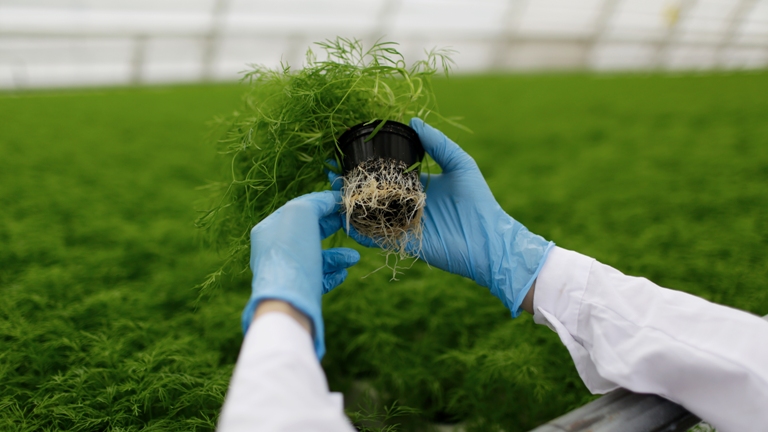Healthy crop growth depends on the appropriate balance of nutrients in the soil. Soil needs macronutrients – nitrogen, phosphorus, potassium, sulphur, calcium, and magnesium – but they are each only one piece of the larger puzzle. Just as essential are micronutrients, like iron, copper, zinc – and – boron. It may be hard to imagine that a nutrient in such a small quantity could be so impactful. However, it is also vital to many plant functions. If your soil testing service results recommend a boron treatment, do not worry! Here is how you can do it.
Why is boron so crucial for plant growth?
Your overall yield and crop quality could improve with adequate amounts of boron. Boron does great for plants; it is used with calcium in helping form the cell wall structure, cell division, amino acid production, and flower initiation, and it helps manage plant water and pollen development. It is required for the translocation of sugars.

Source: Freepik
Photosynthesis transforms sunlight energy into potential plant energy compounds like sugars. For this process to continue in the plants, the sugars must be shifted away from their development site and stored or used to make other compounds. Boron increases the extent of transport of sugars to actively growing regions and also in the developing fruits. It is also required for adequate nitrogen fixation and nodulation in the legume crops.
While a little can be good, it also does not mean more is better. Excess boron can cause toxicity and have just as adverse effects as having too little. The key is always balance.
Major Functions of Boron in Plants
Boron plays a vital role in various plant functions, including cell wall formation and stability, the maintenance of the structural and the functional integrity of the biological membranes, the movement of energy into growing parts of the plants, and pollination and seed set. Adequate Boron is also required for legume crops’ effective nitrogen fixation and nodulation.
Boron deficiency commonly results in the empty pollen grains, poor pollen vitality, and lesser flowers per plant. Low Boron supply can also stunt root growth.
Soil Factors Affecting Boron Deficiency in Plants
Boron deficiency is highly prevalent in the sandy, acidic soils with less organic matter due to the potential for Boron leaching. Soils with high adsorption and retention capacity are also commonly impacted by B deficiency.
In most crops, B shows inferior phloem mobility. Consequently, Boron in leaf tissue cannot be transported sufficiently into the reproductive organs like shoot tips, buds, flowers, seeds, etc. Because of this poor mobility, keeping soluble Boron in soil solution during all the stages of plant growth, particularly during reproductive development (e.g., during seed setting), is vital for optimal plant nutrition.
How to carry out a boron treatment?
The great thing about correcting a boron deficiency revealed in soil testing services is the treatment product is readily available, and a small amount of boron goes a long way. Typically, you will need 1/3 cup per 1000 sq/ft, about six tablespoons per 1000 sq/ft of boron. Small amounts of boron should be well blended with a pre-plant application of N–P–K. You can add the boron to your fertilizer treatment recommendation and spread it together before planting. For established foliage needing boron, you can dissolve one tablespoon per gallon of water and use a garden sprayer to apply.
In conclusion
A healthy soil ecosystem can give plants on your farm easier access to air, water, and nutrients. Therefore, building healthy soil is vital. You can always enjoy a good harvest with the right ingredients in your soil.
Contact SoilOptix® to get all your soil testing-related questions answered today!
Reference: https://www.cropnutrition.com/
